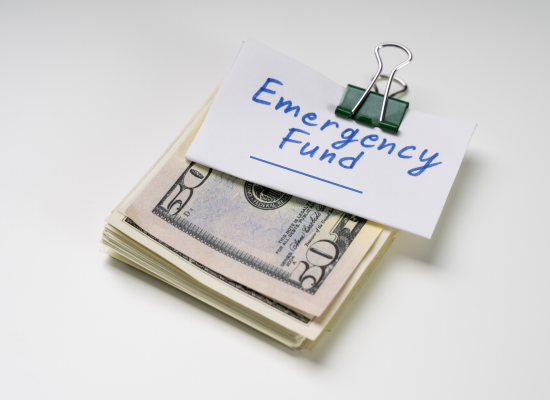Inflation is a term you’ve likely heard in news headlines or casual conversations about rising prices, but what exactly is it, and why does it matter? For anyone managing their finances, understanding it is crucial because it affects your purchasing power, savings, and long-term goals. Often called a “hidden tax,” inflation can hit hardest those living paycheck to paycheck, making it tougher to get ahead. In this article, we’ll break down what it is, explain why it’s considered a hidden tax, explore its disproportionate impact on certain groups, and share practical ways to protect yourself against it, including investing in TIPS. Please note: this information is for educational purposes only and not financial advice.
What is Inflation?
Inflation is the rate at which the general level of prices for goods and services in an economy increases over time. When it occurs, each dollar you have buys less than it did before, reducing your purchasing power. For example, if a gallon of milk costs $4 today and inflation is 3% per year, that same gallon might cost $4.12 next year. Over time, these small increases add up, making everyday expenses like groceries, gas, and rent more costly.
Inflation is typically measured by the Consumer Price Index (CPI), which tracks the average price changes of a basket of goods and services, such as food, housing, and healthcare. The Federal Reserve, the U.S. central bank, often targets an inflation rate of around 2% annually, believing this level supports economic growth without causing runaway price increases. However, it can spike due to factors like supply chain disruptions, rising energy costs, or government policies such as excessive government spending.
Inflation isn’t always bad in moderation—it can signal a healthy, growing economy. But when it rises too quickly or persists, it erodes the value of your money, impacting everything from your budget to your long-term financial plans.
Why is Inflation Considered a Hidden Tax?
Inflation is often called a “hidden tax” because it reduces the real value of your money without you directly paying it, much like a tax silently chips away at your income. Unlike a visible tax, such as income tax withheld from your paycheck (as explained in What Are the Basics of Understanding Your Paycheck and Taxes?), it works indirectly by increasing the cost of living. Here’s how:
- Erodes Purchasing Power: If your income stays the same but prices rise, you can afford less. For example, with 5% inflation, a $1,000 grocery budget buys what $950 would have last year, effectively “taxing” your wallet by $50.
- Diminishes Savings: Money in a traditional savings account earning low interest (e.g., 0.5%) loses value if inflation is higher (e.g., 3%). A $10,000 savings balance might have the purchasing power of only $9,700 after a year, as prices outpace your interest earnings.
- Government Role: Inflation can be fueled by government actions, like printing more money to fund spending, which increases the money supply and drives up prices. This feels like a tax because it’s a systemic force reducing your wealth, often beyond your control.
This hidden tax doesn’t show up on a pay stub, but its impact is real, quietly shrinking the value of your income and savings over time.
Why Inflation Hits Hardest for Those Living Paycheck to Paycheck
Inflation disproportionately affects people living paycheck to paycheck—those who rely on each paycheck to cover immediate expenses with little left for savings or investments. Here’s why:
- Limited Buffer for Price Increases: If rent, groceries, or gas prices rise, someone living paycheck to paycheck has little wiggle room to absorb the extra costs. For example, a 10% increase in rent from $1,000 to $1,100 a month could force tough choices, like cutting back on food or dipping into credit cards, leading to debt and high interest charges (see What is Credit Card Interest?).
- Wages Lag Behind Inflation: While some salaries adjust with inflation, many don’t, especially for low- or fixed-income workers. If inflation is 4% but your raise is only 2%, your real income (adjusted for inflation) shrinks, making it harder to maintain your standard of living.
- Less Access to Wealth-Building Tools: People with extra income can invest in assets like stocks or real estate, which often grow faster than inflation. Those living paycheck to paycheck often lack the funds to invest, leaving their money vulnerable to inflation’s erosion.
- Higher Reliance on Essentials: Lower-income households spend a larger share of their budget on necessities like food, housing, and transportation, which are often hit hardest by inflation. For instance, if gas prices jump 20%, someone commuting daily feels the pinch more than a wealthier person who can work from home.
For these reasons, inflation acts like a regressive tax, burdening those with the least financial flexibility the most, widening the gap between making ends meet and building wealth.
How to Protect Yourself
While you can’t stop inflation, you can take steps to minimize its impact on your finances. Here are practical strategies to protect yourself:
- Invest in Assets That Outpace Inflation
- Stocks and Index Funds: Historically, stocks have outpaced inflation over the long term, with the S&P 500 averaging about 7% annual returns after inflation. Investing in index funds like the Vanguard S&P 500 ETF (VOO) spreads risk and offers growth potential. Start small, even $50 a month, to benefit from compounding.
- Real Estate: Property values and rents often rise with inflation, making real estate a hedge. If buying a home isn’t feasible, consider real estate investment trusts (REITs) through a brokerage for affordable exposure.
- Commodities: Assets like gold or oil can hedge against inflation, though they’re volatile. Invest cautiously, perhaps through commodity ETFs, and limit to a small portfolio portion (e.g., 5–10%).
- Invest in Treasury Inflation-Protected Securities (TIPS)
- TIPS are U.S. government bonds designed to protect against inflation. Their principal adjusts with the CPI, ensuring your investment’s real value keeps pace with rising prices. For example, if you invest $1,000 in TIPS and inflation is 3%, the principal increases to $1,030, and you earn interest on the adjusted amount. TIPS are low-risk, available through brokerages or TreasuryDirect, and ideal for conservative investors seeking inflation protection.
- Use High-Yield Savings Accounts
- Traditional savings accounts often earn less than inflation, eroding your money’s value. A high-yield savings account, offering 3–4% APY (as of May 2025), can better keep pace. For example, $5,000 at 4% earns $200 annually, compared to $25 at 0.5%. Use these for your emergency fund to maintain liquidity.
- Adjust Your Budget
- Revisit your budget to prioritize essentials and cut discretionary spending. For example, if grocery prices rise, meal plan to save $50 a month. Eliminate unnecessary spending. Cook more at home instead of over-spending on restaurants. Redirect savings to investments or debt repayment to stay ahead of inflation’s impact.
- Pay Down High-Interest Debt
- Inflation can make fixed-rate debt like mortgages feel “cheaper” over time as your income rises, but high-interest credit card debt (e.g., 20% APR) grows faster than inflation, eating your budget. Pay off credit card balances in full, as advised in Top Mistakes People Make with Money, to free up money for inflation-beating investments.
- Increase Your Income
- Combat wage stagnation by seeking raises, side hustles, or higher-paying roles. If inflation is 3%, aim for a 4–5% raise to maintain or grow your real income. Extra income can fund investments, strengthening your defense.
Final Thoughts
Inflation is the gradual rise in prices that erodes your purchasing power, acting like a hidden tax that hits hardest those living paycheck to paycheck. By investing in stocks, TIPS, real estate, or high-yield savings, adjusting your budget, paying down debt, and boosting income, you can shield your finances from its effects. Start small, stay consistent, and let time work in your favor. For personalized guidance, consult a financial advisor to craft a personalized strategy.


